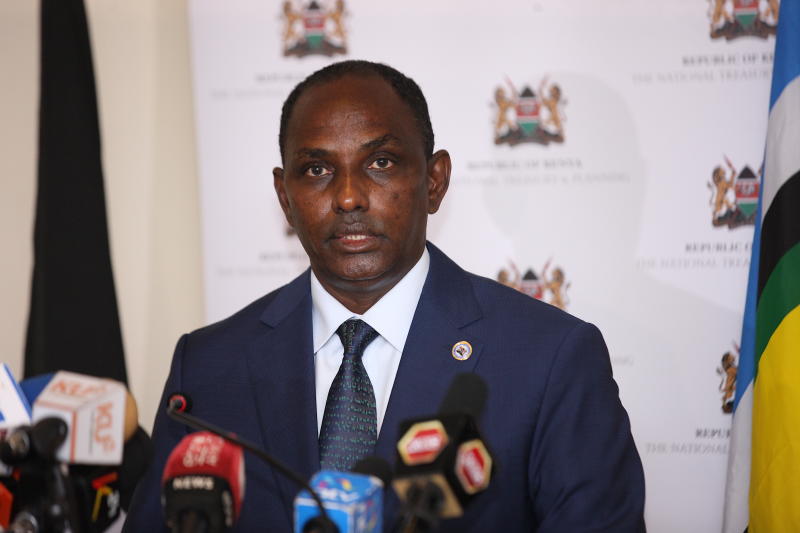×
The Standard e-Paper
Join Thousands Daily

Ukur Yatani, the Cabinet Secretary for National Treasury. [Wilberforce Okwiri, Standard]
President Uhuru Kenyatta's government will spend an additional Sh126.3 billion to prepare for elections, fight drought and procure more Covid-19 vaccines by end of the current financial year.